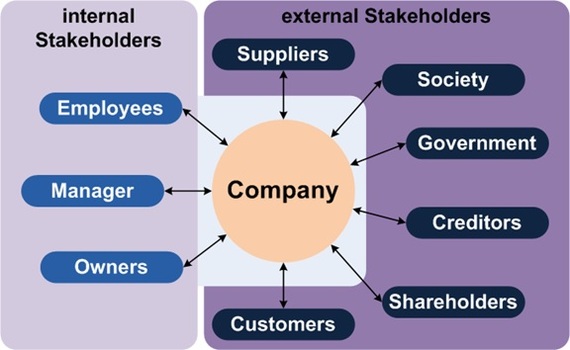by Kevin O'Brien
Many of us have read the New York Times article "Inside Amazon - Wrestling Big Ideas in a Bruising Workplace." If you haven't, you can find the article here. Some former employees and other workplace experts have been weighing in. I decided to take a look at Amazon's annual report to see what I could find about how Amazon portrays itself to the world.
The following appears as the opening statement of the 2014 report:
A dreamy business offering has at least four characteristics. Customers love it, it can grow to very large size, it has strong returns on capital, and it's durable in time - with the potential to endure for decades. When you find one of these, don't just swipe right, get married.
While I like the Tinderish humor, I found this statement curiously lacking in few important areas. Yes, a dreamy business does have raving customers, and has strong returns on assets, and is durable over time. But doesn't a dreamy business also have employees and leaders who love it, and suppliers who love it, and a society who loves it.
Stakeholder Theory indicates that every company has a set of internal and a set of external stakeholders. The companies that endure over the long run are the ones that continuously find creative ways to satisfy all stakeholder needs in both the short and long term. Not just the needs of a few.
Admittedly, it is not easy to following the stakeholder route. To do so, company leadership must paradoxically balance more polarities then they already do. Amazon clearly chooses shareholders and customers over all others. But my question is can a business endure, for decades as the letter suggests, while selectively ignoring the needs of a portion of stakeholders who it ultimately depends on.
Near the end of the shareholder's letter, Jeff talks about a program called Career Choice, in which the following is said:
Before closing, I want to take a moment to update shareowners on something we're excited about and proud of. Three years ago we launched an innovative employee benefit - the Career Choice program, where we pre-pay 95% of tuition for employees to take courses for in-demand fields, such as airplane mechanic or nursing, regardless of whether the skills are relevant to a career at Amazon. The idea was simple: enable choice.
We know that, for some of our fulfillment and customer service center employees, Amazon will be a career. For others, Amazon might be a stepping stone on the way to a job somewhere else - a job that may require new skills. If the right training can make the difference, we want to help, and so far we have been able to help over 2,000 employees who have participated in the program in eight different countries. There's been so much interest that we are now building onsite classrooms so college and technical classes can be taught inside our fulfillment centers, making it even easier for associates to achieve these goals.
The section finishes with an invitation to visit one of Amazon's fulfillment centers. Does anything about this program strike you as odd? A company pays to train it's workers for jobs that don't exist inside its own walls. It is certainly an innovative way to contribute to society. But conventional wisdom would tell you that it makes more sense to train people for jobs or careers inside the company. I think the NY Times article explains pretty well why conventional wisdom does not apply. Amazon simply doesn't expect people to want to say. In fact, they plan on wearing you out until you leave. Love it or hate it, it is the business model.
Time will tell the durability of Amazon, at least in its current incarnation. Will the talent market or society force Amazon to change its ways? In the near term it seems unlikely. Many investment banks and tech firms have the same culture of 70+ hr weeks and don't seem to have any trouble finding a continuous stream of eager recruits. And the fact that Amazon just passed Walmart as the largest retailer in the world by market valuation, which makes it an even larger force to be reckoned with.
Making a dent culture is a wicked problem. An actual shift will require lots of experimentation by various people and groups. This is what the Great Work Cultures initiative is all about.
Kevin O'Brien is an organizational self-management consultant, open-space facilitator, and certified scrum master. A chemical engineer by training, he worked for seven years at W.L. Gore & Associates. He is an associate partner with NuFocus Strategic Group. Kevin is also a champion for Great Work Cultures, a movement dedicated to unleashing the power within every human organization. He currently resides in the city of Philadelphia. He can be reached at k.obrien@nufocusgroup.com

